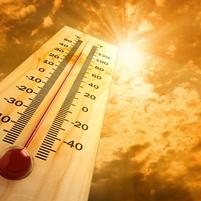“Air conditioning heating up election campaign....Almost all of the deaths were of elderly people, almost of whom were living in places without air conditioning (A/C)”
This headline highlights the summer’s heat-related deaths in Montreal, Canada, where at least 50 older people died during the extreme temperatures in the first week of July this year. It also aligns with comparable media coverage in North America and Europe to signal the vulnerability of older people to the impact of excessive heat.
Population ageing and global warming are increasingly linked through research, for instance, a study in 2013 points out that many older Americans will live in coastal and metropolitan locations with greater susceptibility to climate related hazards such as rising sea levels. There is also a growing awareness of the risk of heat islands in cities, where urban surfaces absorb heat during the day and then release this heat at night. Consequently, the normal cycle of nocturnal cooling is minimised, and limits residents’ physiological or psychological recovery from excessive heat. According to a recent House of Commons report from the UK, this phenomenon is amplified in buildings that are not insulated, and depend on open windows for adequate ventilation situated in high pollution, high noise areas.
There is evidence also that social isolation is a factor in heat wave mortality: older people living alone, as well as those who are marginalised through disability and/or their socioeconomic status, are at higher risk. It is known that high temperatures exacerbate various chronic health problems such as metabolic and endocrine disorders, cardiovascular conditions, and respiratory disease. Mobility limitations and other forms of functional disability may prevent older people from receiving warning signals or asking for help, rendering them invisible to family rescue teams or family members, as in Montreal where some bodies “were in an advanced state of decay, having sometimes spent up to two days in the heat before being found”.
Although a meta-analysis of observational studies reckons that as little as a one degree Celsius increase in temperature could affect mortality and morbidity of elderly adults, an editorial in The Lancet - reflecting on the July heatwave in Japan - argued that the threat of more extreme events - “killer heat waves” - is still under-researched and poorly understood. Cross-country research is complicated by the fact that there is, as yet, no universally accepted definition of ‘heat wave’–parameters relating to magnitude and duration vary between countries. Moreover, and this may seem at first sight rather paradoxical, “most deaths occur during warm periods not classed as heatwaves and the greatest burden of heat-related mortality falls outside the official heatwave period. The time limited nature of the heat-health watch alert service means that the public are not necessarily alerted to unseasonal spells of very high temperatures.” This is the considered conclusion of the House of Commons Environmental Audit Report.
The Intergovernmental Panel on Climate Change [IPCC] conceptualises vulnerability to climate change effects as a function of three criteria:
• Exposure: the character, rate, and magnitude of climate change to which a system, individual, or population is exposed;
• Sensitivity: the sensitivity or susceptibility to damage from those changes;
• Adaptive capacity: the capacity to adjust to changes in climate in order to moderate potential damage, take advantage of opportunities, or cope with consequences.
It is perhaps not surprising that researchers working with this IPCC framework have concluded that an interplay of personal and contextual characteristics contribute to elderly adults’ vulnerability to climate change. Where personal factors relate to health and socio-economic status, and contextual indicators include transportation and emergency preparedness measures, many older people are compromised in these resources. It is worrying, therefore, to find among the conclusions of another study that, with the exception of those individuals who have a strong ecological orientation, “participants did not seem to perceive climate change threats as having a profound effect on their own or their family’s life.”
It is heartening, on the other hand, to see a programme aimed at reducing heat-related mortality among older citizens in central Rome demonstrating that “by strengthening individual relationship networks and the social capital of the community, mortality in those over 75 during heat waves was reduced.” The advice offered by the House of Commons report - “to look out for the person next door who is elderly and vulnerable and lives on their own” - is good advice.
For further reading:
What happens to your body when heat waves kill. The CBC. July 7, 2018, Health.
Sweltering Cities Series. The Guardian [Internet]. 13-17 August, 2018.
Jackson G. Heatwaves: The next silent killer? [Podcast]. Science Weekly Podcast. The Guardian. 17 August, 2018.
About the Author
Dr Pam Irwin is a Research Fellow at the Oxford Institute of Population Ageing. She is working with Dr George Leeson to develop research on homelessness among older people.
Comments Welcome
We welcome your comments on this or any of the Institute's blog posts. Please feel free to email comments to be posted on your behalf to administrator@ageing.ox.ac.uk or use the Disqus facility linked below.
Opinions of the blogger is their own and not endorsed by the Institute
Comments Welcome: We welcome your comments on this or any of the Institute's blog posts. Please feel free to email comments to be posted on your behalf to administrator@ageing.ox.ac.uk or use the Disqus facility linked below.













